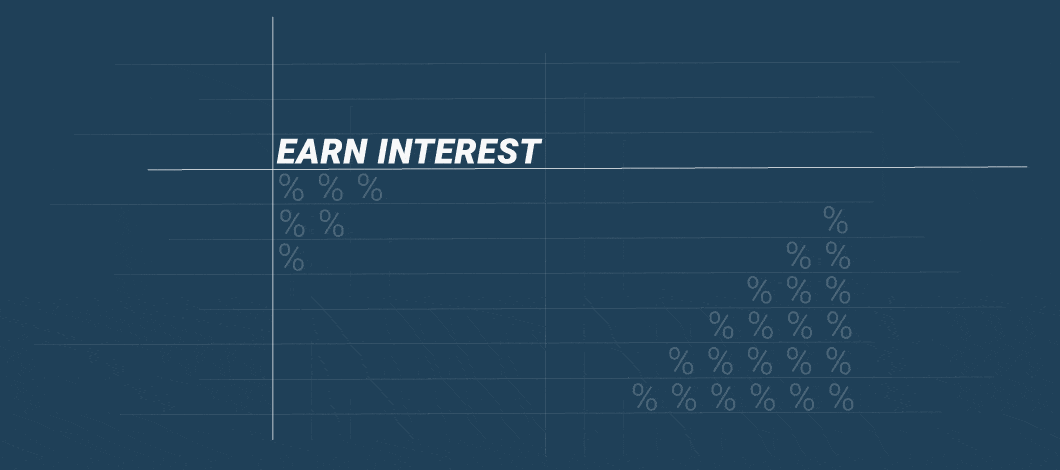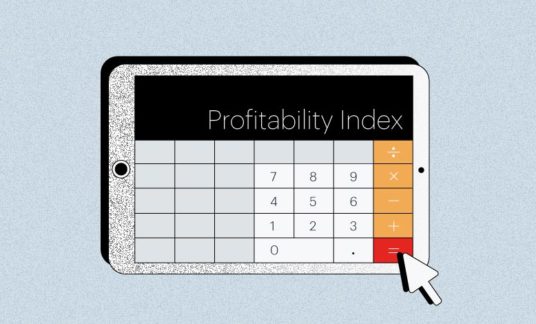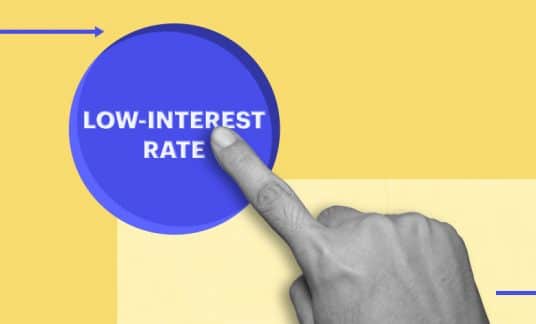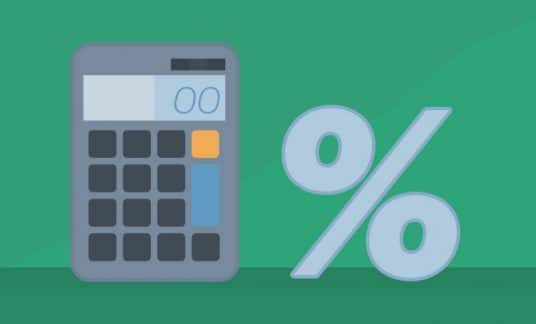What’s the best way to earn interest on your money? It depends on how much money you have to invest, how long you can let it sit and whether you need access to it in the interim.
See the different types of options available, so you can decide which is the best way to save money and earn interest for your business. Also discover tips for how to make money from your savings.
Top Tips for the Best Way to Earn Interest on Money
Here are a few strategies to consider when deciding how to make money from savings for your business. The following are considered low-risk investments because they’re backed by the Federal Deposit Insurance Corporation (FDIC) for banks, the National Credit Union Administration (NCUA) for credit unions or the federal government for U.S. Treasury securities.
- Open high-yield money market accounts or savings accounts, often available with online banks. These accounts pay higher interest rates than regular checking or savings accounts. Some banks also offer cash bonuses for opening accounts.
- Consider opening an account at a credit union, which could offer slightly better interest rates than banks and may have lower fees. However, you may need to qualify to be a member.
- Build CD ladders. In this strategy, you break up your deposit into smaller increments and stagger the maturity dates, so you have more regular access to your money.
- Buy U.S. Treasury securities (also referred to as Treasurys) with varying maturity rates
For those looking to earn higher rates of return, options include investing in mutual funds, index funds, exchange-traded funds (ETFs) or stock and bonds.
Let’s break down each of these options.
High-Yield Money Market Accounts
Money market accounts are one of the best places to save money and earn interest. Business money market accounts offer the flexibility to write a limited number of checks each month but earn higher interest rates than traditional business checking or business savings accounts.
What You Need to Know About High-Yield Money Market Accounts
- Money market accounts are insured by the FDIC or NCUA up to $250,000 for individual accounts per banking institution (or $500,000 for joint accounts).
- You may need to maintain a minimum monthly balance to avoid service fees, which will vary by financial institution.
- Interest rates can vary depending on how much money you save.
- You can write some checks or use a debit card tied to your account.
Money Market Account Interest Rates
As of December 2021, the average interest rate for a money market account was 0.07%, according to the FDIC. By shopping around, you can find better rates for the best place to put your money for interest.
Related: Money Market vs. High-Yield Savings
High-Yield Savings Accounts
If you’re trying to figure out how to increase interest on a savings account, consider a high-yield savings account, another one of the best places to make interest on your money.
What You Need to Know About High-Yield Savings Accounts
- High yield savings accounts are also insured by the FDIC or NCUA up to $250,000 or $500,000 for joint accounts for all accounts held at each bank or credit union.
- You may need to maintain a minimum monthly balance to avoid service fees, which will vary depending on your financial institution.
- Many high-yield savings accounts are only available online.
- Rates may fluctuate more frequently than money market or other savings accounts.
- You cannot write checks on high yield savings accounts and may have limits on withdrawals monthly.
High-Yield Savings Account Interest Rates
As of Jan. 2022, interest rates for some of the best high-yield savings accounts ranged between 0.15% and 0.60%, according to Time.
Want to compare interest rates on business loans?
Other Types of Investments
The Federal Reserve Bank reports that 8 out of 10 small businesses surveyed said they would need to supply additional cash to the business or cut expenses if they had a 2-month revenue loss. Almost half of small businesses said this would require the use of personal funds. So, keeping some cash on hand as a small business emergency fund is a good idea.
Once you’re comfortable that you have enough easily accessible cash to fund operations and handle emergencies or slowdowns, you may want to consider other types of investments that can provide higher returns. If you’re OK with the idea of locking up your savings for a period, certificates of deposit (CDs) and Treasurys are among the best ways to save money and earn interest.
CDs
Certificates of deposit (CDs) may earn interest on savings at a higher rate than traditional bank accounts, but you also must commit to keeping your money invested for the term or risk paying penalties for early withdrawal.
What You Need to Know About Certificates of Deposit
- CDs are guaranteed by the FDIC or NCUA.
- You choose a deposit amount and term (from 30 days to 10 years).
- Once the CD matures, you can withdraw the money and interest earned.
- Some CDs feature fixed rates while others may allow you to “step up” or “bump up” rates if interest rates rise.
- Many investors choose to create CD ladders, which have different rates of maturity so they can access funds as needed.
CD Interest Rates
Average CD interest rates vary depending on the length of time you choose to invest. As of December 2021, average CD interest rates were 0.03% for a 30-day CD, 0.13% for a one-year CD and 0.28% for a 60-month CD, per the FDIC.
Treasurys
Another option for how to make interest on the money you’re saving are Treasurys. Treasury bills (T-bills) and Treasury notes (T-notes) are available in increments of $100.
- Treasury bills: T-bills mature in one year or less. While they do not technically pay interest, they are sold at a discount of face value. You pay the discounted rate when you purchase and get the full value at maturity. The “interest” you earn is the difference between purchase and redemption price.
- Treasury notes: T-notes have terms of 2, 3, 5, 7 or 10 years. You receive a fixed rate of interest twice a year until the note matures.
- Treasury Bonds (T-bonds): T-bonds are also fixed-rate investments with semiannual interest payments with maturity rates of 20 or 30 years.
What You Need to Know About Treasurys
- You can buy Treasurys through banks or brokers or from TreasuryDirect.gov.
- While these investments have fixed rates and terms, you can buy and sell them on exchanges the same way you would buy or sell stocks or other bonds.
- Treasurys are not insured by the FDIC; they are backed by the U.S. government.
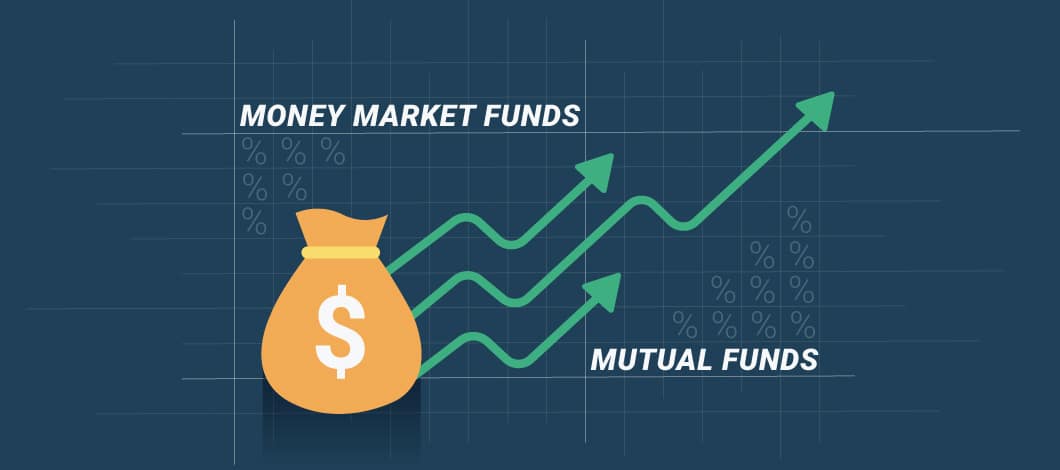
Money Market Funds and Mutual Funds
Not to be confused with money market accounts, money market funds are mutual funds that invest in short-term instruments, such as cash, securities, short-term corporate debt and government bonds. Rather than buying these products directly, you invest in a fund that manages risk across different investment types.
Unlike money market accounts, there is no FDIC protection, and you can lose money. However, they are considered low-risk investments due to the type of investments held. The highest-paying money market funds will pay about 0.10%, although most pay less and may include management fees.
Money market funds are part of the family of mutual funds, which are professionally managed and hold a portfolio of investments. Mutual funds pool investor money, which is used to buy and sell securities (e.g., stocks, bonds) according to the fund’s goals.
Returns can vary greatly and funds range from low risk to high risk depending on industry and objectives. Mutual funds are not backed by any government agency, so you can lose money.
What You Need to Know About Mutual Funds
- These funds are traded daily so investors will see volatility. When investing in mutual funds, businesses should be thinking long-term since it’s not a savings account and money can be lost.
- Purchased directly from brokerages or fund management companies (e.g., Vanguard, Fidelity).
- Management fees can diminish returns.
Index Funds and Exchange-Traded Funds
You can also invest in index funds to diversify risk. Index funds follow benchmarks such as the S&P 500 or Nasdaq 100, and returns generally follow these markets.
ETFs are another option. They also hold multiple assets like mutual funds, but can be traded on market exchanges just like individual stocks and are highly liquid. ETFs can track indexes, industries or commodities.
Stocks and Bonds
Besides Treasury bonds, you can also invest in bonds from companies or government entities. In essence, you’re lending the money to finance debt, which the entity agrees to pay you back with interest. There’s less risk in bonds than stocks, but they also provide a lower return.
Buying individual stocks can yield high returns, but you can also lose some or even all of your investment. You’ll want to examine your risk profile and tolerance as stock prices can be volatile.
What You Need to Know About Stocks and Bonds
- Returns are in proportion to risk. In other words, riskier investments have the potential for bigger returns as well as bigger losses.
- Stocks and bonds are purchased through brokerages or government issuers.
- Management fees can diminish returns.



